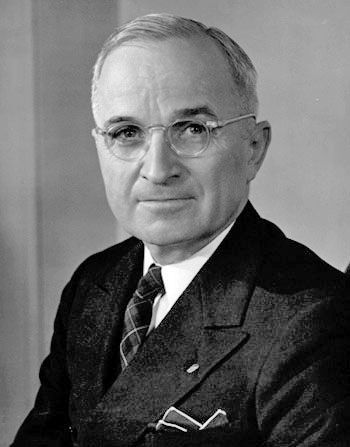On 15 August 1946, US President Harry Truman told Turkish President İsmet İnönü that the US would provide his country with the most substantial assistance in confronting the Soviet Union over the control of the Bosphorus and Dardanelles. The United States would provide Greece and Turkey with more than $400 million in financial and other assistance as part of the US Strategy in the Middle East.
This act was considered the first one effectively taken under the Truman Doctrine, although it would be formalised as a foreign policy programme only after Harry Truman's speech to the US Congress on 12 March 1947.
The doctrine sought to contain the USSR throughout the world and revise the international relations formed under Roosevelt. Among other things, Truman would tell Congress: “The peoples of a number of countries of the world have recently had totalitarian regimes forced upon them against their will. The Government of the United States has made frequent protests against coercion and intimidation, in violation of the Yalta agreement, in Poland, Rumania, and Bulgaria”.
The attitude towards the doctrine was not unanimous. Senator Arthur Vandenberg, in particular, said to Truman: “Mr President, the only way you are ever going to get this is to make a speech and scare the hell out of the country”, and it was only after the president appeared personally before Congress that he agreed to support the document.
Source:
Radmila Ayrian, “Passage of the Truman Doctrine Before US Congress” // Social Sciences No. 4, 2006.
























